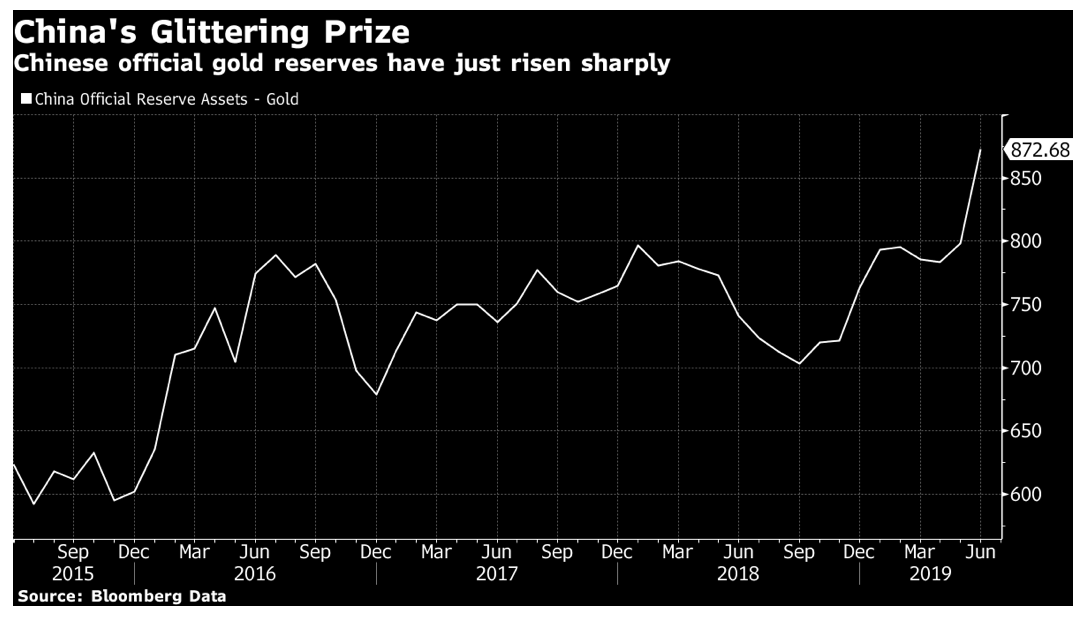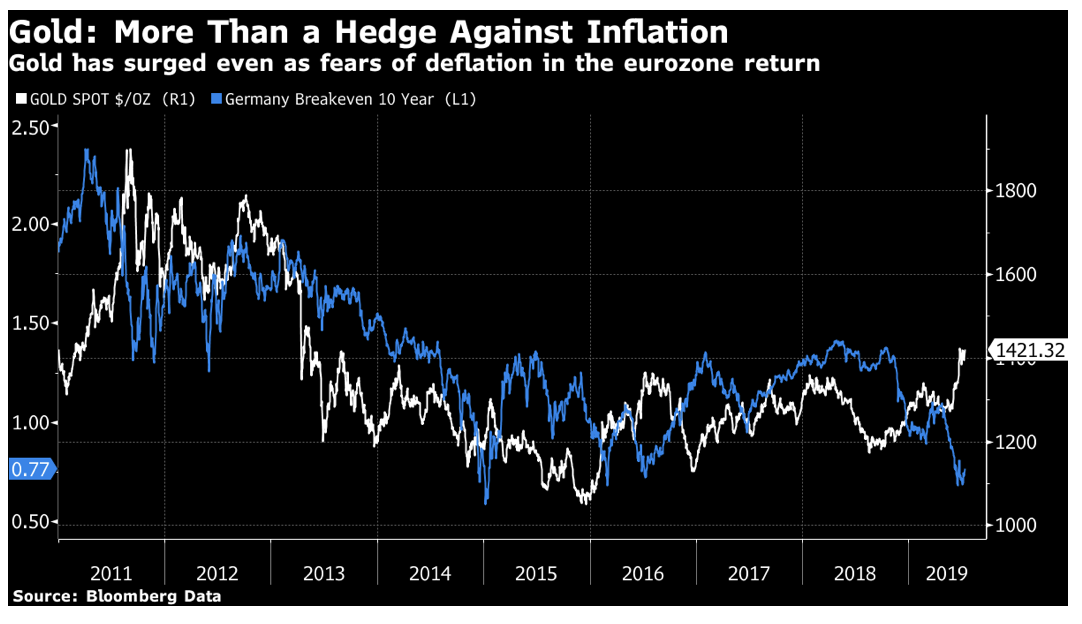Gold als Alternative
Heute Morgen habe ich die Gefahr eines Währungskrieges diskutiert. In diesem Zusammenhang ist es interessant, dass entscheidende Notenbanken wie Russland und China seit Jahren konsequent ihre Goldbestände aufstocken, also vor allem aus dem Dollar heraus diversifizieren. Wer kann es ihnen verdenken.
Interessant dabei, dass es damit scheinbar auch möglich sei, dem Trilemma zu entgehen, das der Nobelpreisträger Robert Mundell definiert hat: Ein Land kann demnach nicht gleichzeitig einen festen Wechselkurs, Kapitalverkehrskontrollen und eine unabhängige Geldpolitik haben. In diesem Fall müsste nämlich die Geldpolitik der Region folgen, an die man sich angedockt hat.
Goldkäufe könnten diese Logik aushebeln, wie John Authers bei Bloomberg diskutiert:
- „As China does not want to cede control of its currency to the foreign-exchange market, or allow free capital flows, and certainly wants to maintain an independent monetary policy, that poses a big problem.” – bto: weshalb auch immer wieder über eine Abwertung des Renminbi diskutiert wird.
- “(…) as I saw the Chinese continue to acquire gold and pursue what seems to be a gold for USD substitution. China is not alone as we see others like India and Russia pursuing something similar. So my question involves how a gold substitute for USD alters the Mundell construction.” – bto: Und es wäre eine ideale Lösung, erfolgte die Währungsintervention zur Verteidigung des festen Wechselkurses durch den Kauf eines anderen Assets.
- “The recent expansion of negative rate sovereign debt to $14T only adds to the question as gold forward contracts have positive yield. Thus a country using gold as a part of its reserve allocation is incentivized to bias away from fiat currency and add to gold. This is a speculative assertion, of course, but the rising gold price seems to be reflecting the global downward march in interest rates. In a world where 95% of all high grade sovereign debt now yields below the fed funds rate and that rate is expected to fall, shouldn’t we question the Mundell construction? And if we do, isn’t gold reserve accumulation a force which might dampen the stress of Mundell’s trinity?” – bto: Ich finde das sehr einleuchtend. Man schlägt zwei Fliegen mit einer Klappe. Man kann unabhängiger agieren und erwirbt ein werthaltigeres Asset.
- “(…) China is transferring to gold and has stepped up its purchases of late, but this is still on a very small scale. Its official gold assets are now $87 billion, according to the People’s Bank of China. This is a lot of money, but still a tiny proportion of total Chinese reserves of more than $3 trillion.” – bto: wobei es durchaus ernsthafte Stimmen gibt, die vermuten, dass China viel mehr Gold gekauft hat, als es offiziell zugibt.
Quelle: Bloomberg
- “And to be clear, the price of gold in dollars is its strongest in six years despite a global deflation scare, typified by collapsing German inflation break-even rates.” – bto: was aber daran liegt, dass man mit Gold besser fährt als mit Staatsanleihen oder Bargeld …
Quelle: Bloomberg
- “Deflation should make gold less attractive, as even paper money can gain in value over time – it loses the appeal that it works as a ‘store of value’ that can guard against currency debasement. But (…) gold is benefiting from the loss of what is usually its greatest disadvantage – its failure to pay any yield. When bonds pay a negative yield, gold begins to appear much more attractive.” – bto: Gold ist immer besser als Papiergeld, denn eine anhaltende Deflation werden wir nicht sehen, würde doch dann reflationiert mit ungekannter Brutalität.









